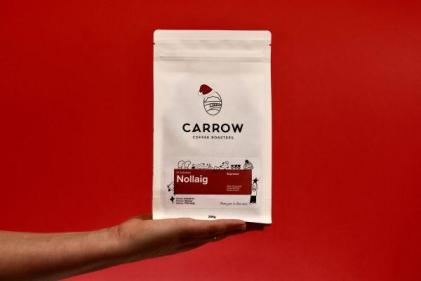Weaning is a big step for both Mum and Baby, as your tiny tot transitions from breast milk or formula to solid foods. It can be a difficult process, but don't worry; you will get there.
Experts recommend you can start weaning a breastfed baby at six months old, and a formula fed baby at four to six months old.
Don’t give your baby any solid foods before he or she is four months old (17 weeks).
As your baby grows, they will need more nutrition and will need to have their diet supplemented with solid foods. They will be able to chew, and will have developed a stronger digestive system that is able to handle different types of food.
Weaning is a very gradual process and won't happen overnight. Here are a few steps you can take to help your baby.
1. Start with very runny, bland foods
It will take your tot some time to become accustomed to the different tastes and textures of solid food. Remember, they're used to drinking milk, so puréed fruit or vegetables are a good start. Baby rice is also good, as it's very bland.
2. Introduce the spoon
Eating from the spoon is a totally new concept for your baby, and it won't come naturally, like breastfeeding. So, pick a time when you're both relaxed to try it out. Don't rush them, they will probably find it hard at first.
If the food goes everywhere, don't stress, it's all part of the process. Allow them to hold one spoon while you feed them with another; this will make them feel involved.
3. Safety first
If you're giving your tot a warm meal, heat it thoroughly, let it cool, stir it well, and then test it yourself before giving it to them.
Make sure you always clean all your feeding utensils thoroughly, also.
4. Let them take their time
You baby needs to figure out how to chew the food, move it around their mouth and swallow it. If they spit it out at first, it doesn't mean they don't like it; it takes them some time to learn how to swallow. It's a whole new world for them, so let them take their time.
5. Mix it up
Once your baby is comfortable with bland foods, you can introduce some new tastes and lumpier textures. This will keep them happy and prevent them from becoming fussy later in life. But introduce foods one at a time, rather than bombarding them.
6. Avoid these foods
- In terms of cow's milk itself, you CAN add a small amount to soften foods.
- Wait until your baby is at least a year before you give them cow's milk. It contains too much salt and protein, and not enough iron and other nutrients for your baby.
- Babies under a year old should never be given honey because of the risk of botulism poisoning.
- Raw or partially cooked eggs - these could give your baby food poisoning.
- Your tot doesn't need any additional sugar in their diet, and it could harm their developing teeth. Avoid sugary drinks and fruit juices.
- Salty foods or added salt should never be given to a baby, as it's bad for their kidneys.
- Gluten isn't suitable for babies weaned under six months.
7. Always supervise them eating
Make sure that an adult is always with your baby when they’re eating. This will minimise the risk of choking.
7. Get some iron in their diet
Iron is vital in the weaning diet, to help your baby grow and develop. Iron also will support brain development. From about six months of age, your baby’s iron stores - accumulated from you when you were pregnant - start to drop.
Good sources of iron are red meat, well-cooked eggs, peas and beans.
8. Don't force-feed
Your baby will let you know when they've had enough. If they are turning their head away and fussing, finish the meal. If you spend too much time persuading them to eat, they may start to refuse food as a way of getting attention. Yes, they're crafty like that!
9. Small meals
Your little one can't eat large amounts of food, so small, frequent meals are best. Try and get as many nutrients as possible into their diet.
10. Occasional breast or bottle feeds
You don't have to cut out breast- or bottle-feeds completely, but alternate them them with solids. Once solids are introduced, some babies will lose interest in nursing by themselves.
If you want to wean a baby off breastfeeding, try reducing feeding times slightly.















